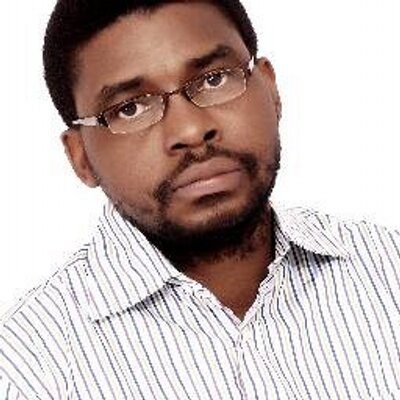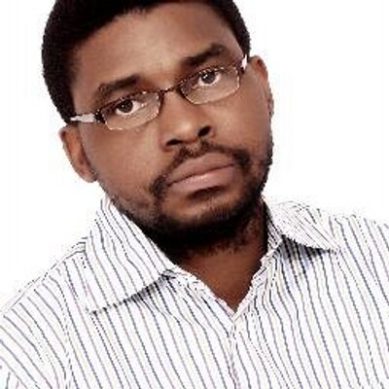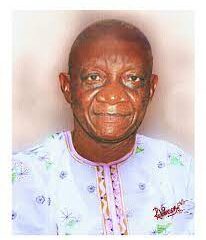National Issues
Nigeria’s Counter-Terrorism and Human Rights Debacle -By Chris Ngwodo

In fact, the Nigerian state itself often acts like a terrorist entity. For years, the term “unknown soldiers” was a euphemism for terror as dispensed by uniformed, anonymous and, therefore, untouchable servants of the state…When agents of the state act with impunity, as is too often the Nigerian case, they lend credence to the extremists’ narratives which portray the state as degenerate, reprobate and unjust…In time, the impunity of the powerful finds a fatal coefficient in the impunity of the powerless. Thus, the age of the unknown soldiers bred the age of the “unknown gunmen” variously described as terrorists, militants and insurgents.
The reaction to Amnesty International’s recent report accusing Nigerian military authorities of human rights violations and war crimes has largely been one of faux nationalist outrage and patriotic sound and fury. The hysteria and histrionics provoked by the report seemed more designed to preclude what should be an important conversation not just about the counter-insurgency campaign but more broadly about the relations between civil society and national security, law enforcement and defence institutions.
In any legal case where criminal charges have been brought against the accused, a key prosecutorial imperative is to unearth a previous record of serial wrongdoing that establishes a pattern and pathology. Do our armed forces and security establishment have an institutional predisposition towards unregulated violence? The answer is irrefutably in the affirmative.
The extrajudicial killing of Mohammed Yusuf, Boko Haram’s founder, in police custody in 2009 and the subsequent indiscriminate slaughter of suspected members of the sect fit perfectly into the group’s self-justifying narrative explaining its war against the Nigerian state.
We could go as far back as 1967 to cite the massacres in Asaba during the civil war – atrocities for which General Yakubu Gowon tendered an apology on a visit in 1997. Federal high courts have awarded damages against the Nigerian Army in favour of Odi and Zaki Biam, two communities that suffered military invasions in 1999 and 2001 retaliation for the murders of police officers and troops by local militant gangs. Both expeditions are estimated to have claimed over a thousand lives. In late 2007, the then Chief of Army Staff, Lieutenant General Luka Yusuf tendered a formal apology to Benue State for the Zaki Biam expedition and pledged to turn a new page on civil-military relations.
The extrajudicial killing of Mohammed Yusuf, Boko Haram’s founder, in police custody in 2009 and the subsequent indiscriminate slaughter of suspected members of the sect fit perfectly into the group’s self-justifying narrative explaining its war against the Nigerian state. A Borno State High Court awarded N100 million in damages to the family of Alhaji Baba Fugu, an alleged sect member and in-law of Yusuf’s, who was murdered in police custody. In July 2013, an altercation between soldiers and a procession of members of the Shiite brotherhood in Zaria led to the shooting of thirty-five Shiite brothers including three sons of the sect’s leader, Sheikh Ibrahim El ZakZakky.
Although there have been no criminal proceedings that sanction individuals for these crimes, the judgments in favour of Odi, Zaki Biam and the Fugu family are eloquent judicial statements of the institutional culpability of the military and the police.
The National Human Rights Commission (NHRC) has indicted the Department of State Security (DSS) for the unlawful killing by its agents of the “Apo 8” – eight commercial tricycle operators in an uncompleted building in the Apo District in late 2013 on the suspicion that they were terrorists. The DSS supplied no evidence to support its claim that the eight slain young men were terrorists. On April 18, 2014, on African Independent Television’s programme Kakaaki, the DSS spokeswoman, Marilyn Ogar, flippantly swatted away questions of her agency’s propriety in handling the situation and insisted that the NHRC could not teach the DSS how to do its job.
Although there have been no criminal proceedings that sanction individuals for these crimes, the judgments in favour of Odi, Zaki Biam and the Fugu family are eloquent judicial statements of the institutional culpability of the military and the police. The problem is not merely that basic legal principles such as the presumption of innocence are set aside but that the disregard of such principles disproportionately afflicts the vulnerable underclass – those so far below the radar of public attention that their enforced transitions from this world will be casually glossed over as unremarkable happenstance.
These incidents highlight the fraught relationship between those who bear arms in the name of the state and those for whose protection they have been granted those arms at public expense. If our society is today drenched in violence, if life has been so cheapened and trivialised and mass murder, banalised, it is because the purveyors of legitimate coercion in recklessly neglecting the ethical responsibilities that come with power and wielding it as a license to kill, have promoted the deregulation of violence. Under these circumstances, numerous non-state actors have emerged challenging the state’s monopoly of coercion.
The evolution of a fringe sect into one of the world’s most sadistic terror groups is principally a failure of the law enforcement, national security and intelligence apparatus. The failure of the DSS, the National Intelligence Agency and the Police to anticipate and abort Boko Haram’s growth should be the subject of a serious wide-ranging inquest into the counter-terrorism effort. The military is the last line of defence not the first resort.
In fact, the Nigerian state itself often acts like a terrorist entity. For years, the term “unknown soldiers” was a euphemism for terror as dispensed by uniformed, anonymous and, therefore, untouchable servants of the state. A state’s monopoly of violence depends upon its own perceived legitimacy which in turn derives from its willingness to check itself, to subscribe to rules of engagement that nullify the possibility of despotic abuse. When agents of the state act with impunity, as is too often the Nigerian case, they lend credence to the extremists’ narratives which portray the state as degenerate, reprobate and unjust. When agents of the state are seen as the official goon squads of the powerful, they are delegitimised. In time, the impunity of the powerful finds a fatal coefficient in the impunity of the powerless. Thus, the age of the unknown soldiers bred the age of the “unknown gunmen” variously described as terrorists, militants and insurgents.
That being said, there is a sense in which the military is being unfairly singled out for serious scrutiny. The evolution of a fringe sect into one of the world’s most sadistic terror groups is principally a failure of the law enforcement, national security and intelligence apparatus. The failure of the DSS, the National Intelligence Agency and the Police to anticipate and abort Boko Haram’s growth should be the subject of a serious wide-ranging inquest into the counter-terrorism effort. The military is the last line of defence not the first resort. When the military, a specialist institution trained in the dexterous use of lethal force against external enemies, is deployed into internal security situations in which crime and conflict overlap, there are certain to be unfortunate occurrences. To an institution that perceives itself as a hammer, all problems are perceived as nails.
It takes the failure of law enforcement, security and intelligence bureaucracies to necessitate the domestic use of the military which is always a scenario to be avoided…The military is a broadsword whereas counter-terrorism often requires the surgical precision of the scalpel in the form of intelligence-gathering and pre-emptive policing.
Over the past four years, Nigeria has embarked on the largest military deployment since the end of the civil war with troops at one point stationed in twenty-four states of the federation in addition to their foreign commitments. There is scant evidence that the military has the psychological tools required to cope with mission fatigue or, particularly, the fallout of dealing with a singularly resilient and vicious insurgency.
It takes the failure of law enforcement, security and intelligence bureaucracies to necessitate the domestic use of the military which is always a scenario to be avoided. The current situation in which the military is at the vanguard of the counter-terrorism effort is actually the worst case scenario. Even now the use of the army for civilian policing functions in certain restive locales neither enhances its combat preparedness nor enables competent law enforcement. The military is a broadsword whereas counter-terrorism often requires the surgical precision of the scalpel in the form of intelligence-gathering and pre-emptive policing.
If local institutions fail to protect ordinary citizens from the predation of state agents, then a country should expect censure from international institutions. Justice must be sourced either locally or globally.
To assume that a protean conflict with a shape-shifting enemy adept at using civilian populations as human shields would not yield tragic incidents was optimism verging on delusion. The genre of asymmetrical warfare which pits classical armies against unorthodox fighting forces has been notably problematic even for Western militaries. However, there is a vast gulf between tragic accidents and an institutional propensity for human rights abuses.
Critics of Amnesty International and the human rights community contend that no one troubles terrorists over their human rights records or frets over the rights of their victims, whether civilians or soldiers. This is patently absurd. A sovereign nation-state must necessarily be weighed on different scales from non-state actors. This is where its legitimacy stems from. Treason would become fashionable if nation-states acted no differently from terrorist groups.
There are also those who see Amnesty International’s indictment as a neo-colonialist infringement of national sovereignty. However, sovereignty is no longer the shield of immunity it used to be. If local institutions fail to protect ordinary citizens from the predation of state agents, then a country should expect censure from international institutions. Justice must be sourced either locally or globally. Until such time as we can effectively sanction state agents for crimes against the citizenry, we should accept that international entities will intervene in our domestic affairs. Sovereignty, after all, also connotes the capacity of the state to protect its citizens and the legitimacy that emanates from it.
…how the war on terrorism is fought matters. The terrorists do not win only when their dark banners flutter over the land. They win when the state’s methods become indistinguishable from their own; when agents of the state evince no greater regard for human life than the terrorists do.
Boko Haram’s attacks have become so routinised that it is easy to forget its unhinged sadism. In August 2013, the Joint Task force organised a screening of Boko Haram’s videos for a group of senators. Though forewarned of the savagery they were going to witness, some of the senators could not bear to watch the full length videos of the insurgents decapitating their captives.
Even so, how the war on terrorism is fought matters. The terrorists do not win only when their dark banners flutter over the land. They win when the state’s methods become indistinguishable from their own; when agents of the state evince no greater regard for human life than the terrorists do. But these methods are not only ethically flawed; they are strategically and tactically questionable. The military’s scorched earth policies may have further radicalised elements of the local population and aided Boko Haram’s recruitment drive much like the militarisation of the Niger Delta in the 1990s helped foster a culture of paramilitary gangsterism.
…there has to be a drive to domesticate and humanise the state and those who enforce its will. This means, among other things, demilitarising law enforcement, jettisoning the principle of collective punishment by which security forces visit heavy-handed retribution on whole communities…and prosecuting the officials responsible for abuses regardless of where they are located in the chain of command.
President Muhammadu Buhari’s first measures have been appropriate – authorising investigations of the alleged human rights violations by the military in particular. The scope of this investigation should be expanded to cover all other security services. Beyond this, there has to be a drive to domesticate and humanise the state and those who enforce its will. This means, among other things, demilitarising law enforcement, jettisoning the principle of collective punishment by which security forces visit heavy-handed retribution on whole communities for the activities of a criminal minority within and prosecuting the officials responsible for abuses regardless of where they are located in the chain of command. The age of unknown soldiers is over.
Effort has been made in recent years to enhance civil-military relations. Yet more could be achieved by strengthening the army’s Training and Doctrination Command (TRADOC) with a view towards using its work to evolve a new national security doctrine that assimilates emergent wisdom on human security, winning hearts and minds and engaging with civil society. We should deepen oversight over our armed forces, law enforcement and security agencies, if necessary, through further statutory empowerment of the NHRC. In so doing, we would enable them overcome their colonial provenance as tools of oppression. Our journey to a more humane and secure society must begin with a renewed regard by the state for human life.
Chris Ngwodo is a writer, consultant and analyst.


















